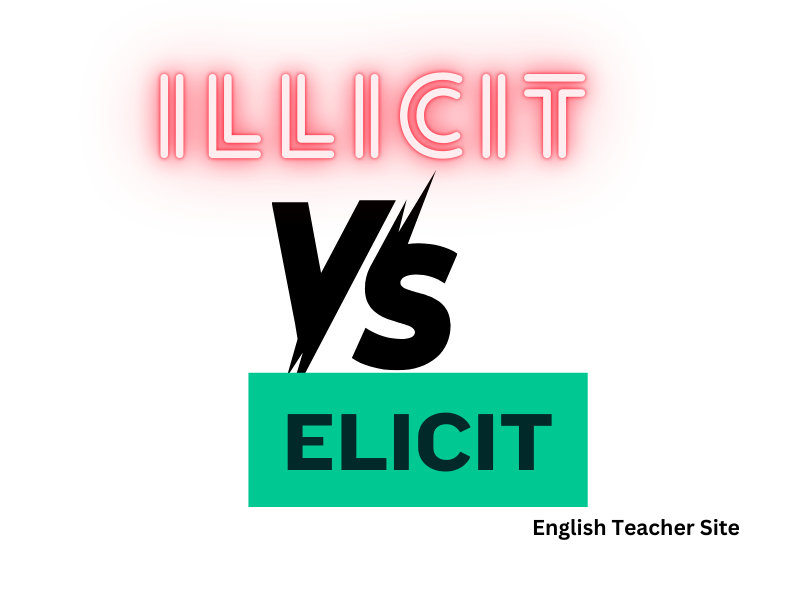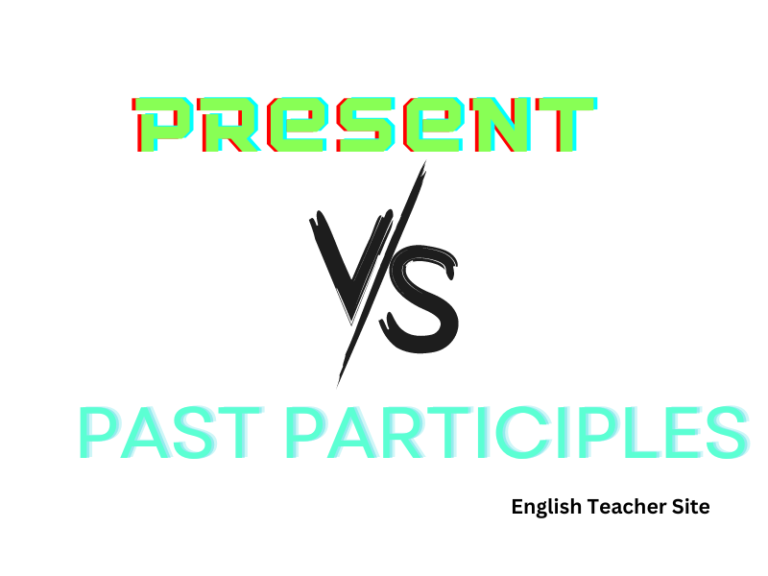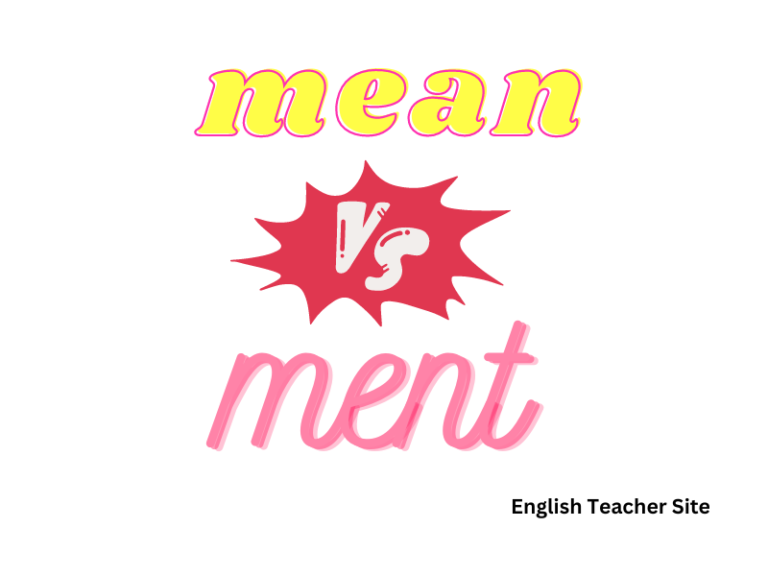Illicit and Elicit: Understanding the Distinct Meanings and Usage

- “Illicit” describes something illegal, while “elicit” means to draw out a reaction.
- One is an adjective, the other a verb, importantly shaping their respective usage.
- Proper understanding prevents confusion and enhances clarity in communication.
The use of “illicit” implies a judgment about the legality or appropriateness of an action, such as “illicit trade.” Whereas “elicit” focuses on the action of extracting or bringing forth a reply or reaction, as in, “The question elicited a strong response.” It’s important to not only recognize the grammatical differences—adjective versus verb—but also to comprehend the contrasting implications these words carry when used in various contexts.
Understanding the Distinction: Elicit vs. Illicit
Elicit and illicit are two such words, differentiated by their part of speech and meaning.
Differentiating Usage
Elicit is a verb that refers to the action of drawing out a response or bringing forth something, such as information, from another person or group. Illicit, however, is an adjective that describes something that is illegal or not allowed by law, standards, or rules.
| Elicit (Verb) | Illicit (Adjective) |
|---|---|
| To draw out a reaction | Forbidden by law or rules |
| To evoke a response | Unlawful or unauthorized |
Examples of sentences with elicit:
- The attorney’s questioning was designed to elicit truthful testimony from the witness.
- Her jokes always elicit laughter from the audience.
Sentences with illicit might include:
- Illicit drugs are prohibited and can lead to arrest.
- The company was fined for its participation in illicit trade practices.
When to Use Illicit vs. Elicit
The following points will help ensure that elicit and illicit are used correctly in writing and speech:
- Use elicit to describe the action of provoking or obtaining a reaction, information, or a response.
- Use illicit when referring to actions or items that are illegal or not sanctioned by governing rules.
| Usage | Correct | Incorrect |
|---|---|---|
| Elicit | She wanted to elicit feedback from her peers. | She wanted to illicit feedback from her peers. |
| Illicit | Authorities cracked down on illicit activities. | Authorities cracked down on elicit activities. |
To further delineate, here are bullet points that summarize key distinctions:
- Elicit:
- Verb form
- A process or action
- Associated with responses and answers
- Illicit:
- Adjective form
- Describes the nature of something, often an activity
- Linked to legality and permission
In practice, always be mindful of the context in which you’re using these words. If referring to gathering a response or evoking an emotion, choose elicit. For actions that are against the rules or unlawful, illicit is the accurate choice.
Unpacking the Difference
In the English language, precision is key, especially when dealing with homophones like “elicit” and “illicit.” These words have distinct meanings and uses, despite their similar pronunciation.
Elucidating the Difference Between Elicit and Illicit
“Elicit” and “illicit” are often confused due to their phonetic likeness. To comprehend their distinct applications and meanings, consider the following detailed comparison.
| Elicit (Verb) | Illicit (Adjective) |
|---|---|
| To draw out a response | Forbidden by law or rules |
| To evoke as a reaction | Unauthorized or improper conduct |
| Related to interaction | Related to the nature of an act |
- Elicit is typically used in contexts where a reaction or a piece of information is drawn out from someone or something. For instance:
- A teacher may ask questions to elicit participation from students.
- An interviewer aims to elicit honest responses from the interviewee.
In contrast:
- Illicit refers to activities or things that are illegal or not sanctioned by societal standards. Examples include:
- Illicit drug trafficking is a major concern for law enforcement agencies.
- An illicit affair might cause scandal and gossip in a community.
To aid in distinguishing the two, here’s a memory aid:
- One elicits (draws out) an “E” for Effect or Emotion.
- On the other hand, illicit has an “I” for Illegal or Improper.
Usage in Sentences:
- Correct: The defense attorney’s questions elicited new evidence from the witness.
- Incorrect: The detective’s actions were described as elicit by the judge.
Bold the critical parts of your comparison to highlight the distinctions between “elicit” and “illicit.”
- Elicit is a verb that derives from the Latin “elicere,” meaning to draw forth.
- Illicit, being an adjective, stems from the Latin “illicitus,” translating to not allowed.
Examples in Context
These words, though similar in sound, differ in both meaning and grammatical function. “Illicit” is an adjective describing something that’s illegal or forbidden, while “elicit” is a verb meaning to draw out a response or reaction. The distinction becomes clear through context, which the following examples will illustrate.
Illustrative Sentences with Illicit
“Illicit” often appears in contexts pertaining to law and societal norms:
| Illicit in Sentences | Explanation |
|---|---|
| The smuggler dealt with illicit goods that were banned from import. | Usage as an adjective to describe illegal merchandise. |
| Their illicit affair was condemned by people in their tight-knit community. | Denotes a relationship that’s socially unacceptable or secret. |
Examples from sentences show “illicit” modifying nouns to describe actions or items that are not legal or socially approved.
Examples of Illicit Usage
Through various instances, “illicit” can be understood more broadly:
- An accountant was arrested for his role in an illicit financial scheme.
- The detective uncovered an illicit trade of rare artifacts.
In these bullet points, the word “illicit” directly conveys the illegal nature of the acts described.
Illustrative Sentences with Elicit
On the other hand, “elicit” is a verb that involves an action, most commonly seen in scenarios involving a reaction or a response:
| Elicit in Sentences | Explanation |
|---|---|
| The comedian’s joke failed to elicit any laughs from the audience. | Shows failure to draw the intended reaction. |
| Her inquiry was designed to elicit truthful answers from the witnesses. | Illustrates an attempt to gain specific information. |
These table entries clarify how “elicit” functions as a verb that triggers responses or feelings.
Instances Demonstrating the Use of Elicit
To see “elicit” in action, consider these examples:
- His controversial art installation elicited a strong response from critics.
- A surprise test elicited groans from the students in the classroom.
Here, the verb “elicit” is used to describe the act of provoking a particular reply or feeling from someone or something.
Synonyms for illicit & elicit
The words illicit and elicit not only sound similar but are often confused, yet they possess entirely different meanings and, consequently, different synonyms.
Illicit, an adjective, denotes something that is illegal or not permitted. Synonyms for the word illicit include:
| Illicit Synonyms | |
|---|---|
| Illegal | Prohibited |
| Unlawful | Unauthorized |
| Forbidden | Immoral |
| Illegitimate | Unlicensed |
| Wrongful | Criminal |
On the other hand, elicit, a verb, means to draw out a response, reaction, or answer. Below are synonyms that capture various nuances of eliciting:
| Elicit Synonyms | |
|---|---|
| Draw out | Provoke |
| Extract | Trigger |
| Induce | Prompt |
| Evoke | Generate |
| Summon | Educe |
The Origin of Illicit and Elicit
Both words have their origins in Latin but have diverged in meaning over time.
Elicit is derived from the Latin elicitus, a past participle of elicere meaning “to draw out.” This is further broken down into the prefix e- (variant of ex- meaning “out”) and licere (“to entice”). This etymological background is reflective of the word’s current meaning, which involves drawing out a response or information.
| Latin Word | Meaning in English |
|---|---|
| elicitus | Drawn out (past participle) |
| elicere | To draw out |
| e-/ex- | Out |
| licere | To entice |
In contrast, the adjective illicit stems from the Latin illicitus, composed of the prefix il- (a variant of in- meaning “not”) and licitus (“lawful”). Hence, it carries the meaning of “not lawful” or “forbidden.”
| Prefix | Latin Word | Meaning in English |
|---|---|---|
| il- | illicitus | Not lawful |
| in- | – | Not |
| – | licitus | Lawful |
Although these words sound similar and share a Latin root related to “licere,” their meanings in English are distinct. Elicit remains a verb indicating the action of bringing forth, while illicit is an adjective describing the state of being unauthorized or illegal.
Source
Harper, Douglas. “Etymology of illicit.” Online Etymology Dictionary, https://www.etymonline.com/word/illicit.
Harper, Douglas. “Etymology of elicit.” Online Etymology Dictionary, https://www.etymonline.com/word/elicit.
My name is Khamis Maiouf. I am the creator of the English Teacher Site, dedicated to providing valuable resources and insights for students around the world. With a passion for education and a commitment to helping students enhance their skills, I aim to make English teaching more effective and enjoyable for both educators and students.






